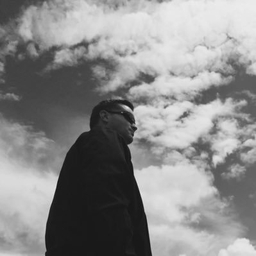
Rob Galloway
Contributor at Daily Mail
A&E Dr, Hon Clin Prof football loving, nhs supporting dad to 5 brill kids.Once voted HSJ NHS wild card top 10 influencers - since failed to have any influence
Articles
-
1 week ago |
dailymail.co.uk | Rob Galloway
Working in A&E, I see the best of care but also the worst – and that's not necessarily the NHS's fault. A few weeks ago I was looking after an 89-year-old gentleman who received care that utterly failed him – devastating for him and his loved ones, and for us as clinicians. Yet it was entirely preventable. It's a lesson for all of us. There is only one thing 100 per cent guaranteed in life – and that's death. But when it came to his death, we got it so wrong.
-
1 month ago |
dailymail.co.uk | Rob Galloway
What do you want from a doctor? Someone you can see when you need to, obviously; someone who cares – but in the end that doesn’t matter as much as someone who knows their stuff and treats you as a whole patient, rather than made up of parts. Recently, I saw a 78-year-old woman with an infected diabetic ulcer who’d had a bad fall.
-
1 month ago |
businessandamerica.com | Rob Galloway
No one wants to be sued, but I think fear of legal action over missing a diagnosis means that a lot of doctors send patients for all kinds of tests – the more high-tech, the better – which may actually be harmful. The first principle in medicine is to do no harm. And over the years, as I have gained more medical wisdom, I have come to realise that my role isn’t ‘just’ about diagnosing people, it’s about balancing risks. This is especially true when it comes to organising scans.
-
1 month ago |
dailymail.co.uk | Rob Galloway
No one wants to be sued, but I think fear of legal action over missing a diagnosis means that a lot of doctors send patients for all kinds of tests – the more high-tech, the better – which may actually be harmful. The first principle in medicine is to do no harm. And over the years, as I have gained more medical wisdom, I have come to realise that my role isn’t ‘just’ about diagnosing people, it’s about balancing risks. This is especially true when it comes to organising scans.
-
2 months ago |
dailymail.co.uk | Rob Galloway
Many patients come to A&E not because they’ve had an accident or an emergency, but in despair, unsure of where else to go. A couple of months ago I saw a gentleman in his late-60s typical of this sad situation. He didn’t arrive shouting or gasping or bleeding, as you might expect in casualty: he was polite, softly spoken and looked fit and healthy. If anything, it was his wife who did most of the talking. ‘We shouldn’t be here,’ she told me, holding back tears. ‘I just don’t know what to do.
Try JournoFinder For Free
Search and contact over 1M+ journalist profiles, browse 100M+ articles, and unlock powerful PR tools.
Start Your 7-Day Free Trial →X (formerly Twitter)
- Followers
- 17K
- Tweets
- 8K
- DMs Open
- Yes

The crowded A&E corridors and disillusioned resident doctors highlight the failure of the current model of medical training. NHS staff, taxpayers and patients have been failed. In this week's Mail Good Health article I discus the new national enquiry into this and the https://t.co/VeVXaxtejl

RT @PharmaVik: Human Factors by @DrRobgalloway the most thought provoking and interesting course @UHSussex at present. Very applicable in h…

RT @DrRobgalloway: The role of a doctor is to be a diagnostician? Incorrect The role of the doctor is to be a riskatician; helping patien…